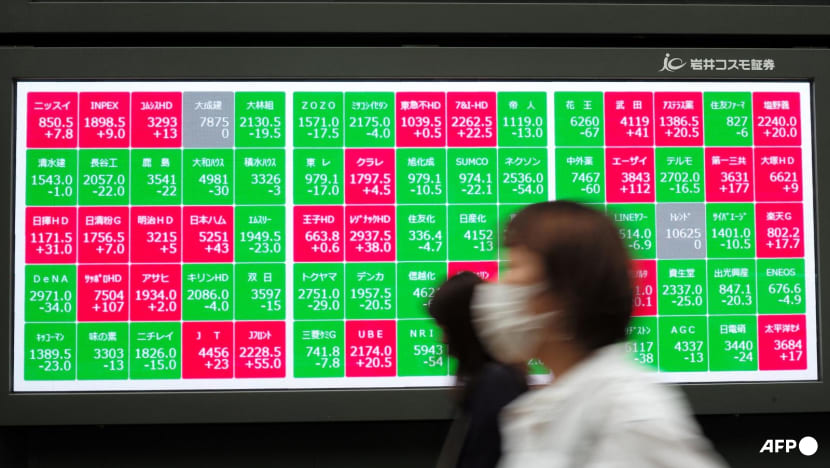Stocks, dollar drop after US loses last triple-A credit rating

Pedestrians walk past an electronic board showing the Nikkei 225 index on the Tokyo Stock Exchange along a street in central Tokyo on May 19, 2025. (Photo: AFP/Kazuhiro Nogi)
The downgrade by Moody's dealt a blow to markets, which had enjoyed a healthy run-up last week after Washington and China reached a deal to temporarily slash tit-for-tat tariffs.
US stocks were down in midday trading, led by the tech-heavy Nasdaq, which fell around half a per cent.
That mirrored losses in Asia, where Tokyo and Hong Kong closed down.
British Prime Minister Keir Starmer said leaders had agreed a "win-win" deal that his office said would add nearly £9 billion (US$12 billion) to the British economy by 2040.
The euro powered ahead despite the EU cutting its 2025 growth forecast for the eurozone, blaming US tariffs.
The dollar slid nearly one per cent against the euro and also fell heavily against the pound and yen.
Analysts said the downgrade by Moody's late Friday, which follows similar moves by S&P in 2011 and Fitch in 2023, could indicate investors will demand higher yields on US Treasuries, pushing up the cost of government debt. Yields rose on Monday.
"It seems like the 'Sell America' narrative is making a comeback," said Fawad Razaqzada, market analyst at City Index and FOREX.com.
The downgrade is "sending tremors through some global markets," he said.
"Investors are increasingly jittery about the cost implications of higher borrowing, especially given the backdrop of (US President) Donald Trump's ongoing trade disputes and proposals for unfunded tax cuts."
Gold, seen as a haven investment, jumped more than one per cent.
"EAT THE TARIFFS"
After a markets rout sparked by Trump's Liberation Day tariffs bazooka, investors had in recent weeks raced back to buy up beaten-down stocks as the White House tempered its hardball tariff approach.
But the selling returned after Moody's cut its US debt rating to Aa1 from Aaa, noting "the increase over more than a decade in government debt and interest payment ratios to levels that are significantly higher than similarly rated sovereigns".
Treasury Secretary Scott Bessent dismissed the announcement, saying it was "a lagging indicator" and blaming Trump's predecessor, Joe Biden.
The news added to a frustrating time for Trump as his "big, beautiful bill" to extend tax cuts from his first term and impose new restrictions on welfare programmes faces scrutiny in the Republican-controlled Congress.
Independent congressional analysts say the package would add more than US$4.8 trillion to the federal deficit over the coming decade.
In company news, Walmart returned to the list of firms feeling a rollercoaster effect under Trump, after the US president slammed the retail giant for warning of price increases due to his tariffs.
Trump called on the company to "EAT THE TARIFFS" on social media, adding, "I'll be watching."
Walmart shares fell Monday.


















